
It is a wordwall resource which contains a game of cards for preschoolers. The game is ,,One / many,,
- Subject:
- Early Childhood Development
- Material Type:
- Game
- Author:
- ANASTASIA RACU
- Date Added:
- 06/19/2022

It is a wordwall resource which contains a game of cards for preschoolers. The game is ,,One / many,,
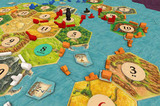
This document is a how-to on having an online gaming program. Two resources will be featured & explained: boardgamearena.com and tabletopia.com. This is an especially effective way for people to connect and while still social distancing.
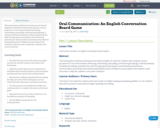
This board game combines practicing conversational English for adult ESL students with using the various purposes for oral communication (informing, entertaining, persuading, and honoring/inspiring). It will also develop foundational reading comprehension skills through game participation and will develop professional communication and interpersonal skills by allowing discussion of different social subjects that students could encounter in daily life, academic, and career situations.

Examine your organs in this 3D jigsaw puzzle. This challenge requires Flash 5 and takes 5-10 minutes.

This lesson plan is a Problem-Based Learning Lesson Plan, which means that the students will work together in groups to complete portions of the lesson. There are also portions of the lesson that require individual work, but they always share their findings with their classmates, whether in person or online.
This lesson is about germs, bacteria, and communicable diseases. The students will learn about germs and how to prevent the spread of germs. They will also learn how germs and bacteria cause communicable diseases. The students will participate in several activities, and they should have a solid grasp of the subjects by the time they complete the culminating, or final, activity.

This is a lesson on how to teach proper passing technique in soccer including a passing activity to help assess how students are doing.
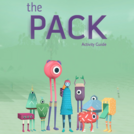
The Pack is a digital game that encourages learners to use Computational Thinking (CT) to solve problems they encounter in the futuristic world of Algos, where healthy ecosystems have faltered and water and food are scarce. Throughout the game, players must find food sources to attract their own Pack of Algos creatures. These creatures have various functions (like digging, moving, grabbing, and bumping) that can help the player collect seeds and bring water to dry areas. Creatures can be combined to form algorithms that perform complex tasks and overcome challenges. Players’ use of these algorithms is the key to finding all of the seeds and restoring harmony to Algos!
The Pack game and supplemental activities are designed to support middle schoolers in engaging with Computational Thinking concepts and practices while reinforcing basic scientific reasoning. The supplemental activities encourage players to reflect on their gameplay through the lens of Computational Thinking and to explore how solving problems in the game connects to the ways they can solve problems in class and beyond. The supplemental activities can be implemented in a classroom, as part of an after-school program, or even as an activity for families to do together at home.

Sopa de letras con las palabras clave en la educación continua.

This resource includes the first part of a 2-week activity designed to teach Social-Emotional Learning and build relationships in the classroom through gamification. In the first part of the lesson, we will describe the process and recall information that students can expand on. They will get to do the first trial in groups similar to the activities/game they will be participating in the following week. The second week involves putting social-emotional learning into action through a week long of group-activities, aiming towards a common goal.

The students will examine their knowledge of the parts of speech with this fun game of mad libs. The teacher provides them with a story of his or her own authorship, which contains a series of blanks where the student must write a word from the corresponding part of speech in order to make the story their own.

Academic practice to design an interactive lesson plan to implement it in the currently virtual sessions.

- to repeat the vocabulary on the topic ‘Travelling’;-to present the basic uses of the Passive Voice, to present Ss with a concise but comprehensive table of the verb changes from the Active into Passive Voice
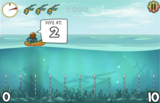
Pearl Diver is a fun, interactive web-based game and app for iPad and iPhone. Players learn the number line while diving for pearls amidst shipwrecks and sunken ruins. This learning game addresses standard mathematic concepts included in the current Common Core curriculum such as:
-understanding numbers, ways of representing numbers, and number systems
-understanding and representing commonly used fractions
-understanding fractions as part of unit wholes and as locations on number lines
-comparing and ordering fractions, and finding their approximate locations on the number line
Pearl Diver is supported by supplementary materials including teacher’s guide, learner’s guide, “Teaching With Pearl Diver” video, and printable resources. It is available in English and Spanish. This game is available free on the Apple App Store.
This project was sponsored by NSF and developed by the Learning Games Lab in collaboration with researchers and mathematicians in the College of Education and College of Arts and Sciences at New Mexico State University.
Press Release Links:
http://newscenter.nmsu.edu/Articles/view/7833
Pearl Diver ACE award
http://newscenter.nmsu.edu/Articles/view/5230
Funding for Math Snacks (includes image of Pearl Diver)
http://newscenter.nmsu.edu/Articles/view/4828
Links to scholarly publications:
Trespalacios, J., & Chamberlin, B. (2012). Pearl Diver: Identifying numbers on a number line. Teaching Children’s Mathematics, 18, 446-447.
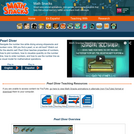
Navigate the number line while diving amidst shipwrecks and sunken ruins. Will you find a pearl, or an old boot? Watch out for the electric eel! Pearl Diver teaches properties of numbers, how to plot numbers, how to visualize quantity on the number line, how to order numbers, and how to use the number line as a visual model for mathematical operations.

This course provides the framework of financial planning by focusing on managing and organizing personal financial resources. It incorporates insurance planning which stresses the importance of protecting financial resources, investment planning for growth of resources, and long-term planning for old age survival.
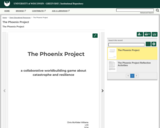
In The Phoenix Project, 3-5 players take on the roles of community members striving to rebuild their city after ruination and disaster. In this game, players collaboratively create a map across four phases of gameplay—Determine the Disaster, The City Before, The City at Present, and The City to Come. Players take turns during these phases, building on, expanding, and complicating each other's contributions to the map with the goal of telling a rich and evolving story of adaptability in the face of world-changing events and circumstances. The game aims to foster cooperation, creativity, and empathy as players navigate challenges and obstacles, shaping the future of their city and their world. While the length of gameplay can be adjusted by the players as they wish, the standard game is expected to take around 45 to 60 minutes to play.
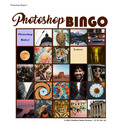
This game was made to help review skills learned in an "Image Editing with Photoshop" Course. Contents include:
15 different PSD BINGO cards with images as smart objects to be manipulated per teacher’s instructions
Set of the 15 bingo cards as JPG to print out to have students cross out the images after they've made the changes on the PSD image
Instructor Image Card -A page with all of the images to draw out of a hat, bowl or bag.
32 Full size copyright-friendly (OER) images that the teacher can use to demonstrate the instructions.
3 additional images for Overlays as part of the instructions
"Before" and “After” images (PSD) to show what each image should look like after applying the changes
List of the steps for the different manipulation to be done for each photo when it is chosen
Attribution list of all the photos' OER sources

This quiz provides a great opportunity for teachers to begin a lesson by having students participate in a fun and interactive quiz on Kahoot! to refresh students basic knowledge of photosynthesis before diving deeper into the topic.
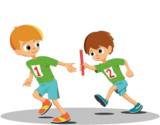
Students will run and grab cards and perform a certain workout that goes with each card. Once workout is done, next student may run down and get a card. Once cards are gone, group with most cards win.
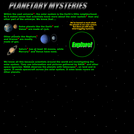
This fun Web article is part of OLogy, where kids can collect virtual trading cards and create projects with them. Here, they explore the "mind-boggling mysteries" of our solar system. The article opens with a quick review of what we know about our solar system and how we've gathered that information. Students then "explore the mystery" of each planet within our solar system, which is presented though fun facts, evidence, theories, and NASA missions. The article ends with a nine-question quiz that gives students a fun way to test what they've learned.